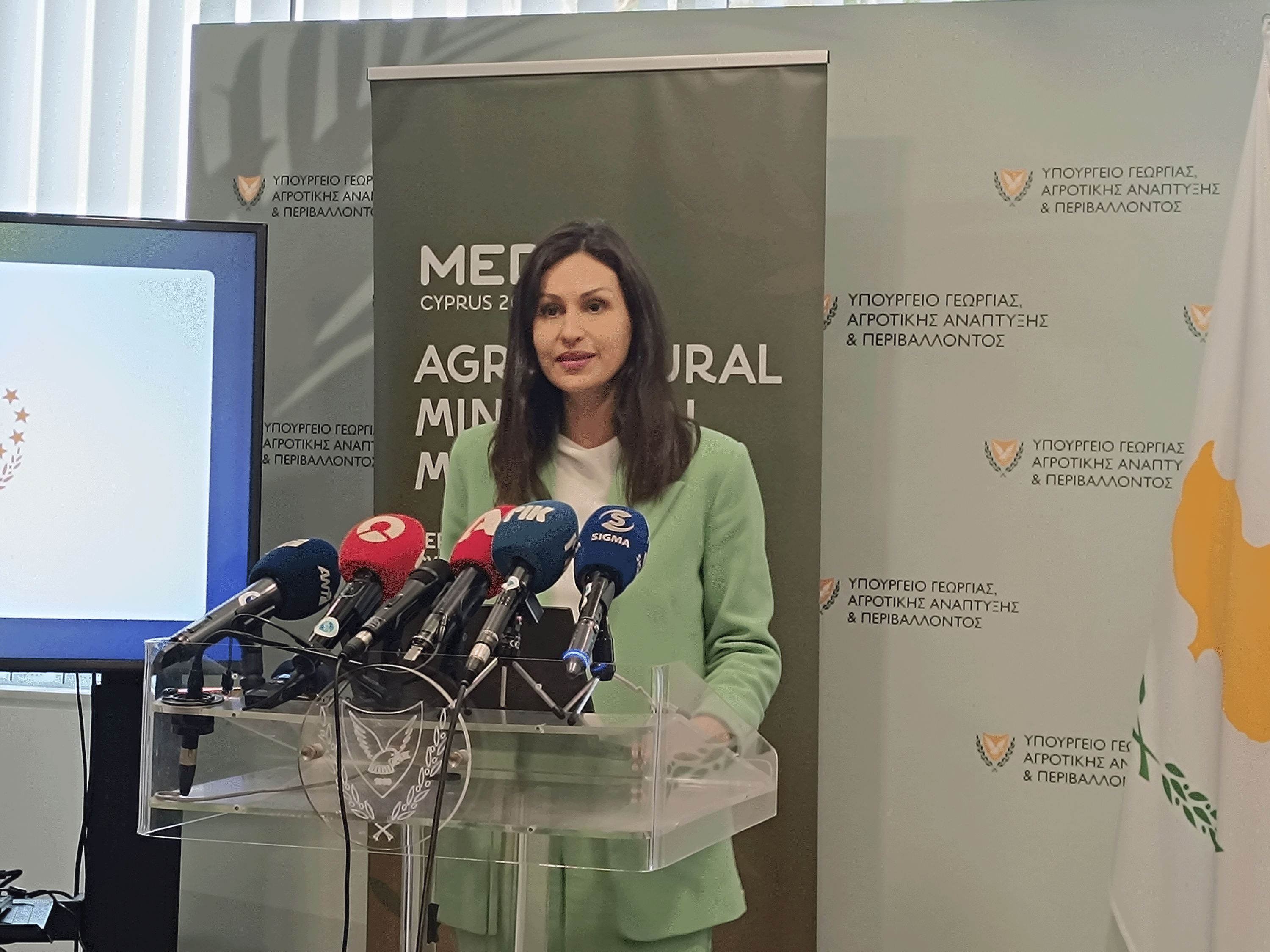Cypriot traditional quality products such as halloumi, kolokasi and commandaria, are national treasures, Agriculture Minister Maria Panayiotou said on Thursday.
The minister was speaking at the second CyFood B2B Forum in Larnaca which she said is an event that “undoubtedly strengthens the local economy” while it connects the business world of hospitality and catering with that of agricultural food production and marketing.
In her speech, she emphasised the importance of Cypriot traditional quality products – especially those already registered in the European Registry of Geographical Indications, such as Halloumi, commandaria, various local wines and other traditional cold cuts and pasta represent “the national wealth of our country.”
The minister also mentioned a recent presentation celebrating the 800th anniversary of commandaria’s recognition at the first recorded medieval wine competition in France in 1224 under King Philip Augustus. The presentation took place at the International Organisation of Vine and Wine (OIV) headquarters in Dijon, France.
She emphasised that these products are central to promoting Cypriot cuisine, both within the local hospitality and catering sectors and in export markets. She also stated that the government is dedicated to supporting the balance between tradition and innovation, as well as ensuring the integration of culinary excellence with modern technology.
“The government and the ministry of agriculture support the authenticity, superior quality and uniqueness of Cypriot agricultural products through the protection offered by Geographical Indications and corresponding quality systems,” she said.
Panayiotou highlighted that on October 2, the Council of Ministers approved a new primary sector strategy, which, she said, was a commitment under President Nikos Christodoulides’s governance programme. This strategy, according to the minister, is “not just another initiative, but the roadmap reflecting the vision of the ministry and the government for the future of Cypriot agriculture.”
Reflecting on the production process, from primary production at agricultural and livestock units, to artisanal and industrial processing, and to services associated with the sector’s activities, “the substantial contribution to the creation and maintenance of jobs for our local communities is immediately evident.”







Click here to change your cookie preferences